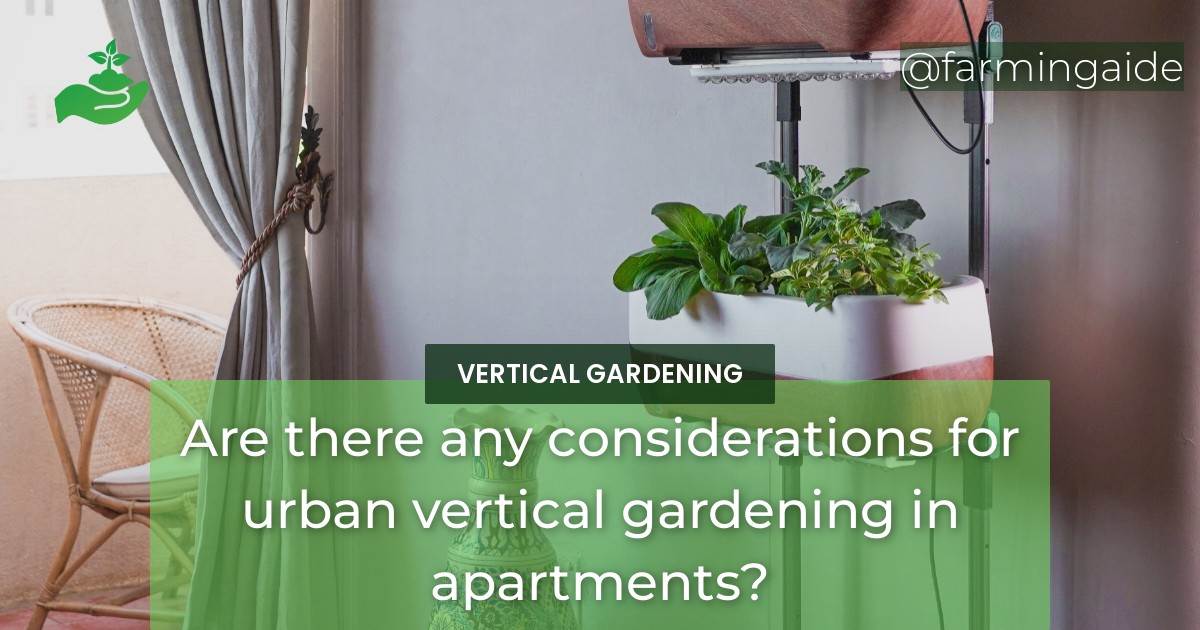Urban apartment vertical gardening is a creative way of utilizing limited spaces in apartments to grow plants. Although limited space may be a challenge, apartment vertical gardening offers a practical solution that allows individuals to enjoy the benefits of a garden regardless of the size of their apartment. This article explores space-saving techniques, balcony and terrace gardening tips, and container choices for limited spaces to help you create your own urban vertical garden in your apartment.
Introduction to Urban Vertical Gardening in Apartments
Vertical gardening involves growing plants on a vertical surface, making it a perfect solution for individuals who have limited space in their apartments. This type of gardening can be done on walls, balconies, and terraces, making it a versatile option for any apartment dweller.
Benefits of Vertical Gardening in Apartments
Vertical gardening in apartments offers several benefits, including:
- Improved air quality in the apartment
- Reduced stress levels
- Increased aesthetic appeal
- A viable source of fresh produce
- Improved indoor climate
ALSO READ
Space-saving Techniques for Apartment Vertical Gardens
Choosing the Right Wall for Vertical Gardening
One of the first things to consider when creating an apartment vertical garden is choosing the right wall to install it on. The wall should be sturdy enough to hold the weight of the plants and equipment. The wall should also have good drainage and receive enough sunlight to ensure the plants thrive.
Opting for Vertical Gardening Structures
Vertical gardening structures such as trellises, frames, and shelves are excellent space-saving techniques for apartment vertical gardens. They not only provide support for the plants but also help to create a beautiful garden display.
Using Hanging Containers for Vertical Gardening
Hanging containers can help to maximize space in an apartment vertical garden. They are ideal for growing plants such as herbs, succulents, and small vegetables. Hanging containers can be placed on walls, balconies, and terraces.
Balcony and Terrace Gardening Tips
Evaluating Light and Wind Conditions
When planning a balcony or terrace garden, it’s crucial to evaluate the light and wind conditions. Determine whether the balcony or terrace receives enough sunlight and wind protection to ensure that the plants thrive. This will help you choose the right plants to grow.
Choosing the Right Plants for Balcony and Terrace Gardening
When choosing plants for a balcony or terrace garden, it’s essential to consider their light and wind requirements. Plants such as herbs, succulents, and small vegetables are ideal for balcony and terrace gardening. They not only thrive in limited spaces but also require minimal maintenance.
Making the Most of the Space with Container Gardening
Container gardening is an excellent way of maximizing on limited space in balcony and terrace gardening. Using containers such as pots, hanging baskets, and vertical planters allows you to make the most of the space available.
ALSO READ
Container Choices for Limited Spaces
Evaluating Container Material and Size
When choosing containers for apartment vertical gardening, it’s crucial to consider their material and size. Containers made of materials such as plastic, metal, and clay are ideal for apartment vertical gardening. They are lightweight, durable, and easy to move around. The size of the container should be based on the type of plant being grown.
Choosing the Right Soil for Containers
The soil used in containers for apartment vertical gardening should be well-draining and fertile. It should be able to retain moisture to ensure that the plants thrive. Consider using potting soil, which is nutrient-rich, and provides proper drainage and aeration for the plants.
Maintaining the Health and Growth of Plants in Containers
Maintaining the health and growth of plants in containers requires regular watering, fertilization, and pruning. Water the plants regularly to ensure that they receive enough moisture. Fertilize the plants every few weeks to provide them with the necessary nutrients, and prune them to control their growth and appearance.
How Can Urban Vertical Gardening in Apartments Contribute to Noise Reduction in Urban Areas?
Urban vertical gardening in apartments can significantly contribute to noise reduction in urban areas. The presence of vertical gardens helps in absorbing and blocking high-frequency sounds, thus helping to create a more peaceful and serene environment. In this way, vertical garden reduce noise pollution and improve the overall quality of life in densely populated cities.
Conclusion
Creating an urban vertical garden in your apartment is an excellent way to make the most of limited space while enjoying the benefits of a garden. Whether you’re using space-saving techniques, balcony and terrace gardening tips, or container choices for limited spaces, you can create a beautiful and thriving garden in your apartment.
RELATED ARTICLES:


